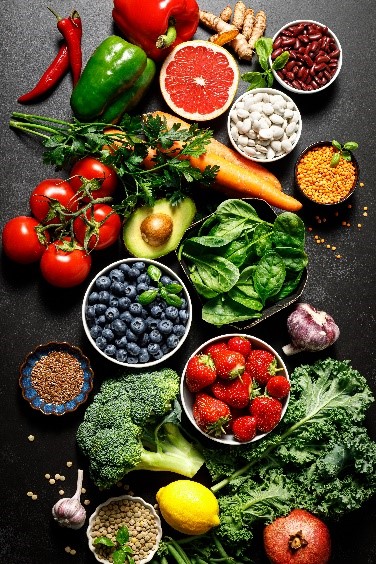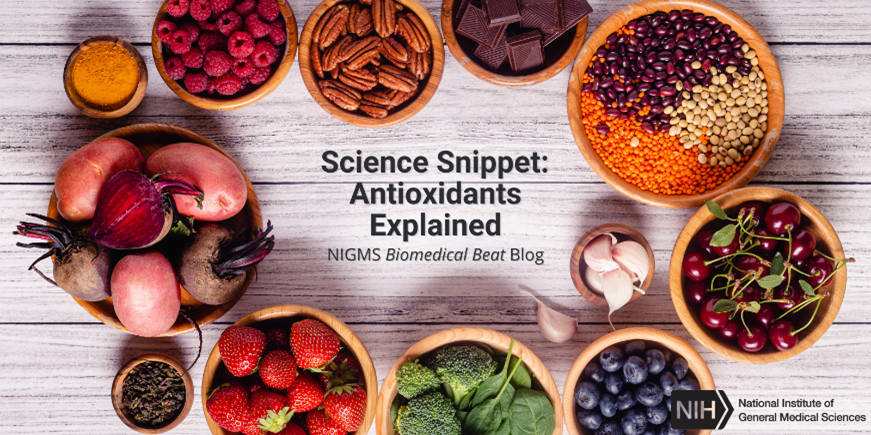
While at the grocery store, you’ve likely noticed foods with labels saying they contain antioxidants, but what does that mean? In short, antioxidants are substances that may prevent or delay some types of cell damage. Many foods, including fruits and vegetables, naturally produce antioxidants like vitamins C and E, beta-carotene, and selenium. Our bodies also naturally produce antioxidant molecules such as alpha-lipoic acid, glutathione, and coenzyme Q10.
Antioxidants are united by their ability to donate electrons, which helps them protect the body against reactive oxygen species (ROS). ROS form naturally during exercise, when your body converts food into energy, or during exposure to certain environmental factors such as cigarette smoke, air pollution, and sunlight. These molecules can “steal” electrons from other molecules, and though they aren’t always harmful, consistently high amounts of ROS in your body can cause a condition known as oxidative stress that can damage cells. That cell damage may also lead to chronic diseases, especially if ROS steal electrons from DNA or other important molecules and alter their functions.
All antioxidants help prevent ROS from building up by giving them the electrons they seek, but each antioxidant has its own additional chemical behaviors and biological properties. This means that certain types of antioxidants perform slightly different roles than others. For example, some antioxidants can dissolve in lipids and help prevent damage in places where these molecules are found, such as cell membranes. Other antioxidants dissolve in water and don’t interact easily with lipids. Because of differences like this, our bodies need a variety of antioxidants to stay healthy.
A diet that includes a variety of fruits and vegetables can help us get the range of antioxidants we need but don’t produce ourselves. Studies have shown that higher intakes of antioxidant-rich fruits, vegetables, and legumes are associated with a lower risk of chronic oxidative stress-related conditions, such as cancer and diseases that affect the heart and blood vessels.
You might wonder if taking antioxidants as supplements provides the same benefits as getting them through your diet. Researchers have asked that question too, and their studies haven’t found supplements to provide significant protection against most chronic diseases. One reason may be that antioxidants tend to work best in combination with other molecules that are found in foods but not in supplements. Another factor may be that foods can have different types of antioxidants than supplements. For instance, foods have eight different forms of vitamin E, and supplements typically use only one of those.
NIGMS-Funded Research
NIGMS supports many scientists who investigate antioxidant-related topics. Some of these researchers are:
- Studying how a key antioxidant enzyme that our bodies produce does its job. This work could aid in developing treatments for diseases where the enzyme doesn’t function normally, such as cancer and neurodegenerative disorders.
- Synthesizing new, powerful antioxidants that may help treat oxidative stress.
- Developing ways to measure antioxidants more reliably in biological samples such as blood and tissue, helping scientists to better understand the antioxidant levels in people’s bodies and how they’re affected by factors like diseases, diet, and supplements.
- Identifying the antioxidants in tef (also called teff), a gluten-free grain that’s low on the glycemic index and high in fiber, and is a staple food crop in Ethiopia and Eritrea.
Learn about other scientific terms with the NIGMS glossary.







